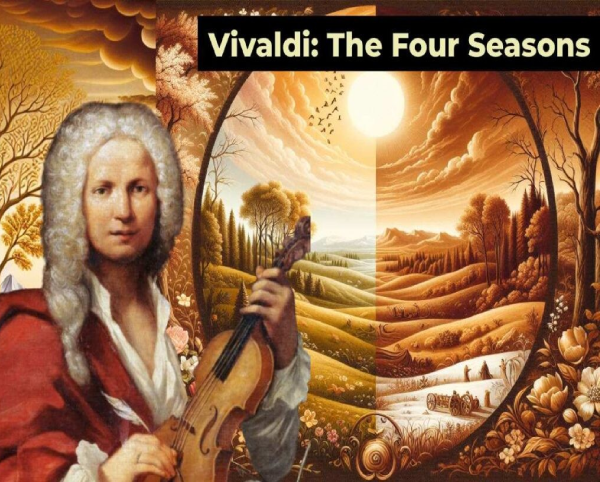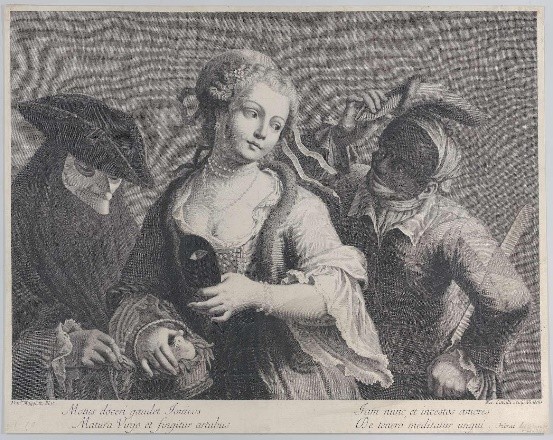Venice on fire! Vivaldi the red priest

Step into Venice in 1725. The air is thick with candle wax, salt from the lagoon, and music spilling from hidden chambers. Inside the Ospedale della Pietà, Antonio Vivaldi—composer, violinist, and priest—sits at a table littered with manuscripts, his red hair catching the candlelight. This is the year he published The Four Seasons, music that turned storms, birdsong, and winter’s bite into sound.
Vivaldi lived with contradictions. He was both priest and performer, disciplined and volatile, revered and scandalised. Nicknamed Il Prete Rosso—the Red Priest—for his flaming hair, he carried a reputation as dazzling as it was dangerous. He moved through Venice like quicksilver: teacher, impresario, violin virtuoso, opera composer, and restless entrepreneur.
At the Pietà, he trained orphaned girls to become an orchestra the world had never seen. Concealed behind grilles in the church gallery, their music shocked audiences. Visitors wrote of the haunting effect: invisible girls producing angelic sound. “Many were abandoned,” Vivaldi said, “but when they hold an instrument, they are queens.” His fierce teaching turned out musicians who could rival Europe’s best.
Vivaldi himself was unstoppable. Writing at lightning speed, he churned out concertos, sonatas, operas by the dozen. Critics scoffed that he recycled ideas and wrote too much. He laughed at them: for him, inspiration was floodwater, and he refused to dam it. Abundance to Vivaldi was survival. Venice’s theatres demanded novelty every season. To fall silent was to vanish.

And yet behind the flamboyance was fragility. Chronic illness plagued him; asthma kept him from saying Mass. He admitted he felt peace only in rare moments, when his students’ laughter echoed through the Pietà, or when a single violin note seemed to hold heaven’s breath. His music, he said, was his Mass: “Faith gives reason, music the voice.”
Venice, with its carnival masks and rivalries, shaped him. He called it both cradle and prison, feeding him colour and drama while trapping him in endless intrigue. Patronage was fickle, impresarios treacherous, rivals eager for his fall. Still, he thrived on the knife-fight atmosphere of opera seasons, driving himself onward with a mix of pride, hunger, and fire.
But fire burns out. Two decades later, fortune abandoned him. His operas fell out of fashion, patrons vanished, and his restless pace drained his energy. In 1740, he left for Vienna, hoping for imperial support, only to find his patron, Charles VI, dead. Within a year, Vivaldi himself died in poverty, buried in an unmarked grave.
And yet history returned. Centuries later, The Four Seasons blazed anew, becoming one of the most performed works in classical music. The immortality he craved arrived at last. Vivaldi, misunderstood in life, became a legend in death.
Behind every dazzling storm in his concertos lies a man who confessed: “I compose because silence is unbearable to me.” In that, perhaps, lies the essence of Vivaldi—the restless Red Haired Priest, forever chasing fire through sound.

ANDREW MEETS VIVALDI IN OUR LATEST FULL MONTHLY FEATURE. CLICK HERE
